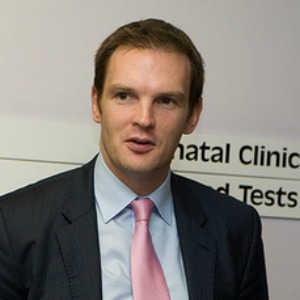‘Named GP’ plans thrown into disarray as minister suggests practices can devolve care coordination to district nurses

Exclusive Plans to rollout ‘named GPs’ for all elderly patients from April have been thrown into confusion after a minister’s suggestion that practices could devolve the coordination of care to district nurses was challenged by the nurse’s representative body.
Health minister Dr Dan Poulter said that named GPs would be tasked with working with other parts of the NHS to ensure that all patients aged over 75 had their care coordinated by the ‘most appropriate professional for that individual’s needs’.
In a parliamentary response, he said that while GPs might be the best placed person to fulfil this role, in ‘most instances other professionals are likely to be better suited to take on the care coordination role’, including district nurses.
The suggestion that GPs can delegate care coordination comes despite the Department of Health initially stating that coordination of care would GPs’ responsibility, as it hailed a move back towards ‘old-fashioned family doctors’. The responsibility is due to be introduced in the new GP contract in England from April.
But the DH said that there was ‘no inconsistency’ and that GPs must take ‘lead responsibility for co-ordinating a range of services’ so that elderly patients get the best care.
The Royal College of Nursing challenged the idea that care coordination could be shared, saying that ‘significant investment’ would be required for community nursing teams to take on the additional work.
Dr Poulter told MPs last week: ‘Named GPs will be expected to work with associated health and social care professionals to deliver a multidisciplinary care package that meets the needs of the patient. In some cases this may include working with colleagues such as district nurses, who are well placed to visit patients in the community.
‘Further to this, it will be the responsibility of the named GP to ensure that their patients have effective care coordination in place by the most appropriate professional for that individual’s needs. GPs may be well placed to fulfil this role, but in most instances other professionals are likely to be better suited to take on the care coordination role.’
But his comment that GP practices could devolve care coordination to district nurses was rejected by the RCN.
An RCN spokesperson said: ‘The real issue here is that GPs don’t own or direct district nurses and the community services have to be properly commissioned to take the new service ideas into account. People over 75 who have needs should have a proper person-centred plan of care that identifies the appropriate services they need.
‘If we are going to simply pass the responsibility on to community nursing teams, then there will have to be significant investment for that.’
But the GPC said they ‘hoped’ community services and nurses would work with named GPs.
Deputy GPC chair Dr Richard Vautrey said: ‘There is a difference between the named GP and the care co-ordinator. The former has to be a GP in the practice and is the person who will oversee care delivered. The latter is the person most involved in the direct care giving and could be someone in the practice or the wider health care team, such as a district nurse or a community matron.
‘The practice has no management responsibilities of others outside the practice but this is more about formalising the reality for that patient, and where a community nurse or social worker is the one most closely involved with a patient it would be hoped that they would work in an integrated way with the practice. We need to move to a point in the future where there is greater cooperation and collaboration between members of the wider primary healthcare team, working with a common care plan.’
But Family Doctor Association chair Dr Peter Swinyard said: ‘Until we actually get some contractual buy-in, some contractual tie-down, I think that working on hope is cloud-cuckoo-land, really.
‘The Government is not a nice, sweet, benign organisation who value GPs and think everything GPs do is wonderful and they should make life easy for us. If the Government writes the rules in such a way that they can screw us, sooner or later they will. So we have to be very careful to ensure the rules are written in such a way that the patients benefit and the GP is protected from unreasonable demands.’
A Department of Health spokesperson said: ‘Under these major changes the buck will stop with GPs for ensuring that older people are proactively cared for better according to their individual needs. But this won’t mean that GPs suddenly start controlling the work of all community health professionals.
‘Whether it’s sharing records more closely or writing joint care plans, the key point will be coordinating all experts to work together closer as team for the good of the patient.’
He added: ‘There is no inconsistency here. We have said all along that GPs must take lead responsibility for co-ordinating a range of services so that vulnerable patients get the best care. But of course there will be frequent instances where it is most appropriate for another health professional to continue playing a leading role in delivering an individual’s care, based on their personal needs.’









